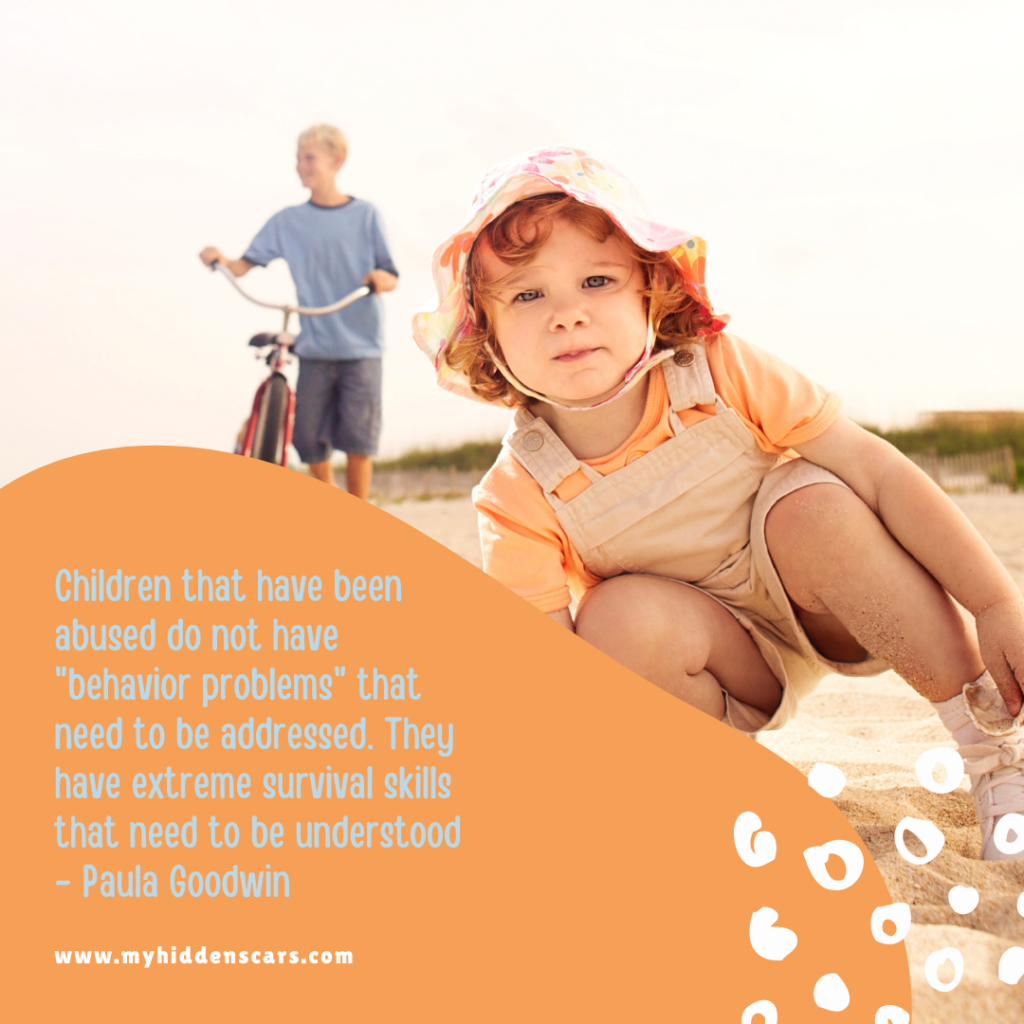Do you find yourself constantly at odds with your ex when it comes to co-parenting? Is every interaction filled with tension, frustration, or even anger? Co-parenting is never easy, but dealing with a difficult or abusive ex-partner can make the situation unbearable. It’s time to take control of the problem and learn how to set boundaries for a more positive co-parenting relationship.
As a divorce coach, I have helped countless clients navigate the challenges of co-parenting with a difficult or abusive ex. Whether it’s an ex who refuses to follow agreements or one who tries to manipulate the situation in their favor, some strategies can help you establish healthy boundaries and protect your peace of mind.
I want to share some tips and tricks for setting boundaries while co-parenting with a challenging ex.
Recognizing The Signs Of A Difficult or Abusive Ex
Learning how to co-parent with a difficult or abusive ex can be an emotionally challenging experience. It is important to recognize the signs of a difficult or abusive ex early on to learn effective coping strategies and set boundaries for yourself.
A difficult or abusive ex may exhibit behaviors such as being overly controlling, making unreasonable demands, or refusing to communicate effectively. These actions can cause feelings of frustration, anger, and stress. It is important to deal with these feelings in healthy ways, such as seeking support from family and friends or speaking with a therapist or divorce coach.
By recognizing the signs of a difficult or abusive ex and learning how to cope with your emotions, you can take control of the situation and create a better co-parenting situation that benefits you and your children.

Establishing Clear Communication Guidelines
Effective strategies for co-parenting with a difficult or abusive ex include establishing clear communication guidelines.
It is crucial to determine how often and in what manner you will communicate with your ex about the children, whether through email, text message, parenting app, or phone calls. I always recommend keeping all communication via email or a parenting app for my clients dealing with a difficult or abusive ex.
Set boundaries around when communication can occur, such as not allowing phone calls during work hours or after a specific time at night.
Another effective strategy is to discuss only matters related to the children and avoid personal topics or arguments. Suppose your ex tries to discuss personal issues. In that case, you can bring the conversation back by saying something like, “let’s keep this related to the children.”
Some things can make clear communication between co-parents difficult.
One of these is using accusatory or provoking language, which can lead to defensiveness and hostility from the other party.
Avoid attacking your ex’s character and instead focus on specific behaviors or actions that need addressing.
Avoid making assumptions about their intentions or motives without first seeking clarification.
Establishing clear communication guidelines may require compromise and patience from both parties involved.
Finding the best system for you may take some trial and error.
Setting these guidelines can help promote a more peaceful co-parenting relationship by limiting misunderstandings and reducing conflict.

Creating A Co-Parenting Plan
Once you have established clear communication guidelines with your difficult ex, creating a co-parenting plan is time. This will help guarantee that both of you are on the same page and have a structured way of reaching decisions and parenting time schedules.
The following four items should be included in your co-parenting plan:
- A detailed schedule outlining when each parent has parenting time, including holidays and special occasions.
- Guidelines for how decisions regarding the children will be made, such as educational choices or medical care.
- Communication guidelines for sharing information about the children between parents, such as school progress reports or health updates.
- Plans for resolving conflicts that may arise between co-parents.
A solid co-parenting plan can help reduce stress and conflict while providing your children with as much stability and consistency as possible.
Setting Limits And Sticking To Them
As the saying goes, ‘boundaries are a sign of self-respect.’ When co-parenting with a difficult or abusive ex, setting limits is important to maintaining your emotional and mental well-being.
The importance of consistency cannot be stressed enough when it comes to enforcing boundaries. If you give in just once, it sends the message that your boundaries aren’t important or worth respecting.
Consequences for violations should also be established beforehand so that both parties understand what will happen if they cross a line. This can range from reducing visitation time to seeking legal action if necessary.
Negotiating boundaries can be challenging. It’s important to approach these conversations calmly and respectfully while keeping in mind what’s best for the children involved.
Consider the children’s needs and how certain boundaries could impact them before making any decisions. Remember that compromising doesn’t mean giving up on your values; instead, it means finding common ground where everyone feels heard and respected. But as a divorce coach, I understand how difficult this is when dealing with a difficult or abusive ex.
Setting limits and sticking to them is key when co-parenting with a difficult or abusive ex. Consistency is key, as well as establishing consequences for violations upfront. Negotiating boundaries requires compromise strategies while prioritizing the needs of the children involved.
By doing so, you’re not only showing self-respect but also modeling healthy communication skills for your children during this challenging time in their lives.
Seeking Professional Help When Necessary
If you find that setting boundaries with your difficult or abusive ex is becoming more challenging, it may be time to seek professional help.
There’s no shame in asking for assistance when co-parenting becomes overwhelming or unmanageable.
Finding resources such as a divorce coach or therapist can provide an objective perspective and new strategies for dealing with the situation.
Overcoming the stigma surrounding mental health care can be a hurdle for some individuals, but seeking help does not mean weakness or failure.
It shows strength and commitment to finding healthy solutions for yourself and your children.
Remember, taking care of your well-being is key to effectively co-parenting with a difficult or abusive ex.

Frequently Asked Questions
How Can I Maintain A Positive Relationship With My Children Despite The Hostility From My Difficult Or Abusive Ex?
To maintain a positive relationship with your children despite the hostility from your difficult or abusive ex, building a bond and effective communication is key.
It is understandable that co-parenting can be challenging, especially when dealing with an uncooperative ex-partner. However, focusing on establishing trust and open lines of communication between you and your children will go a long way in creating a healthy co-parenting dynamic.
This means actively listening to their concerns and needs while also expressing your own in a respectful manner. Remember that your kids may feel torn or caught in the middle of any conflict between you and your ex, so it’s important to prioritize their well-being above all else.
With patience, empathy, and clear communication channels, you can work towards building a positive relationship with your children, even in the middle of difficulties with your ex-spouse.
Is It Possible To Co-Parent With A Difficult Or Abusive Ex Without Involving The Court System?
When dealing with a difficult or abusive ex, it’s understandable to want to avoid the court system. There are alternative strategies available for co-parenting without involving lawyers and judges, but honestly, this doesn’t always work out.
Effective parental communication is key in these situations. It may be helpful to establish clear boundaries and expectations from the beginning and find ways to communicate about important topics such as schedules and discipline effectively.
Remember that while it may not always be easy or smooth sailing, co-parenting can still be successful even with a challenging ex-partner.
How Can I Handle Situations Where My Difficult Or Abusive Ex Undermines My Authority As A Parent?
Handling situations where a difficult or abusive ex undermines your authority as a parent can be challenging. Still, there are strategies that you can use to manage boundaries and cope with the stress.
When setting boundaries with a co-parent who may not respect them, communication is important. Be clear and firm in stating what behaviors are unacceptable and what consequences will follow if they continue.
It’s also important to practice self-care and seek support from others who understand your situation, such as a high-conflict divorce coach.
Remember, while it may feel impossible at times, you have the power to create healthy boundaries for yourself and your children.
What Can I Do If My Difficult Or Abusive Ex Refuses To Follow The Co-Parenting Plan We Agreed To?
It can be incredibly frustrating when your co-parent refuses to follow the agreed-upon plan. It’s natural to feel angry, helpless, and overwhelmed in these situations, but avoiding reacting impulsively or emotionally is important.
Instead, focus on communication strategies that prioritize calmness and clarity. If you’re struggling to make progress, don’t hesitate to seek professional help from a therapist, mediator, or divorce coach who specializes in co-parenting issues.
Remember: setting boundaries is critical for protecting yourself and your children, even if it feels uncomfortable at first.

How Can I Ensure That My Children’s Emotional Well-Being Is Not Affected By The Constant Conflict With My Difficult Or Abusive Ex?
To make sure your children’s emotional well-being is not affected by constant conflict with a difficult or abusive ex, it is important to communicate effectively and seek professional help.
It can be challenging to navigate co-parenting when there is tension and hostility between you and your ex-partner, but putting your children first should always be the priority.
Communicating in a calm and respectful manner, even when faced with difficult situations, can go a long way in reducing conflict.
If necessary, seeking the guidance of a therapist or divorce coach can provide additional support and tools for effective communication and boundary-setting.
Remember, taking care of yourself emotionally will also benefit your children in the long run.
Conclusion
Co-parenting with a difficult or abusive ex can be challenging, but it is not impossible. Remember to set boundaries and communicate effectively to ensure that your children’s emotional well-being is prioritized.
It may also help to seek the support of a divorce coach or therapist who can provide guidance on navigating this complex situation.
At the end of the day, you are in control of how you respond to your difficult or abusive ex’s behavior. Don’t let their negativity bring you down or undermine your parenting abilities.
Keep calm and carry on – as they say, ‘surf lives rough waves’ With patience and persistence, co-parenting with a difficult or abusive ex can lead to a more peaceful and positive outcome for everyone involved.



